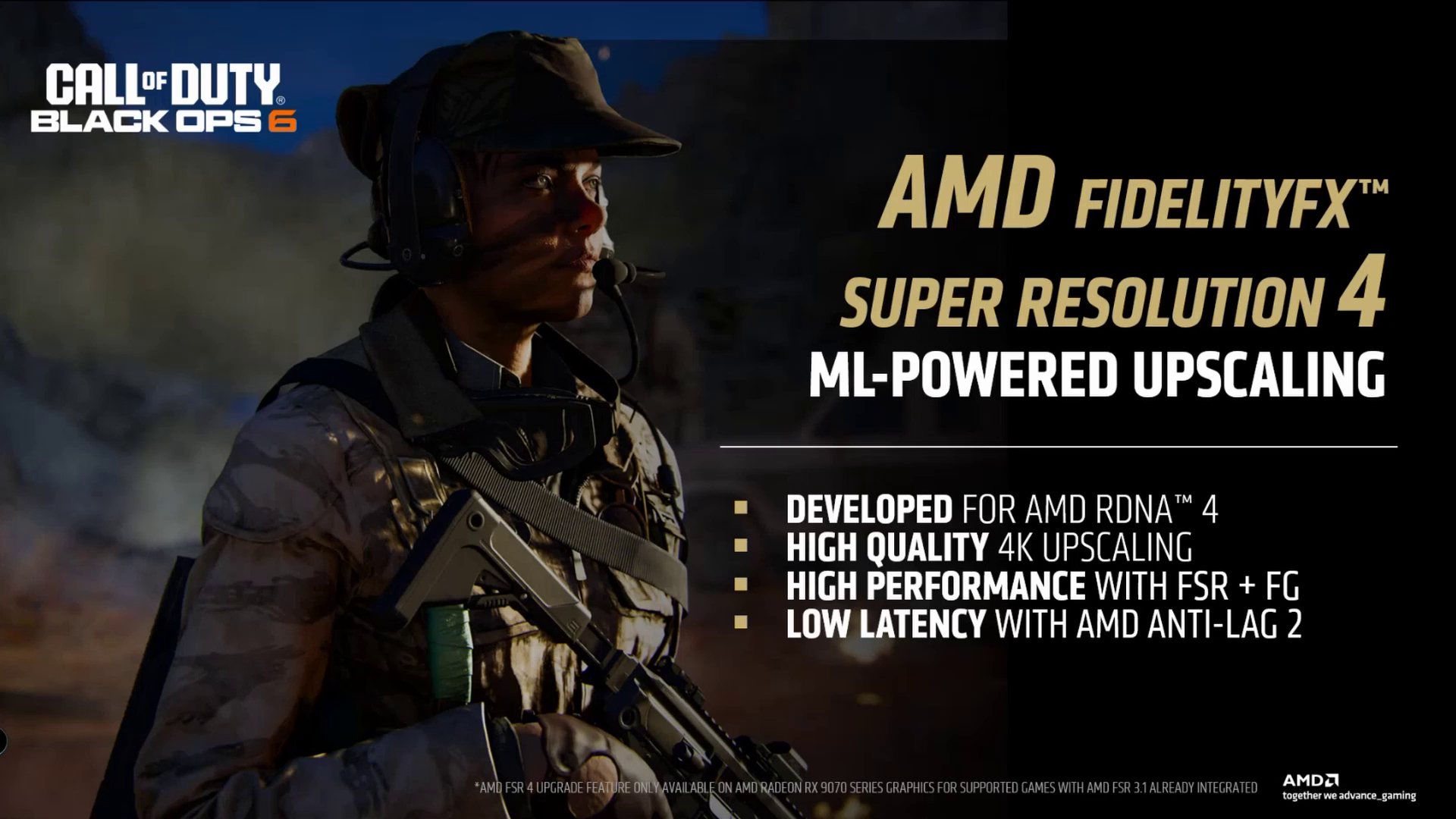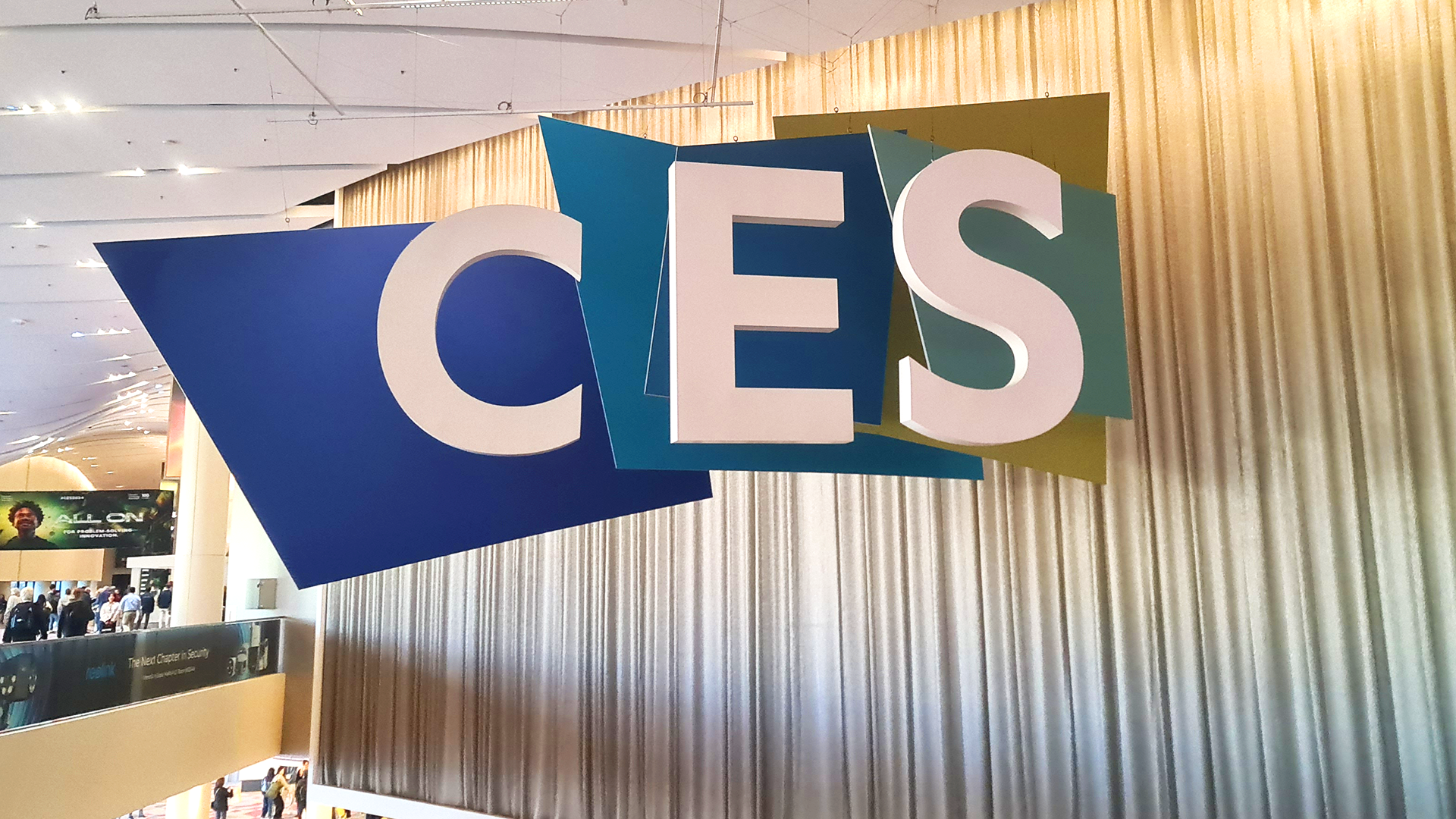AMD's FSR 4 will use machine learning but requires an RDNA 4 GPU, promises 'a dramatic improvement in terms of performance and quality'
As an owner of an RDNA 3 card, boo. Still, here's hoping those image quality claims prove out.

As part of the AMD announcement today at CES 2025, AMD has taken the lid off the latest version of its upscaling tech, FSR 4. Non-Nvidia GPU users have long lusted after an upscaler that can compete with DLSS, and according to AMD, there are significant improvements here that may do just that.
The bad news? You'll need one of those fancy new RDNA 4 cards to take advantage of it. AMD says that FSR 4 was "developed for RDNA 4 and the unique compute aspects of the RDNA 4 AI accelerators", which means that this new machine learning-powered solution will need an RX 9070 XT or RX 9070 to power all the AI gubbins.

My RX 7800 XT weeps. Anyway, AMD also says that FSR delivers "very high quality 4K upscaling with a dramatic improvement in terms of performance and quality compared to prior generations."
It's interesting that performance is touted as one of the great improvements to FSR 4 over the previous version, as my FSR 3.1 testing shows that AMD's most recent upscaler release can, in most scenarios, keep up with DLSS 3 in the framerate stakes—and sometimes even slightly surpass it.
As my comparison with Nvidia's efforts demonstrates, however, FSR's image quality still lags far behind DLSS on anything but Quality settings—so here's hoping the machine learning improvements in the new version equate to less fizzy, grainy images, particularly at Performance setting levels.
With the Nvidia announcement due to take place later today, part of me wonders whether the performance improvement claims are in anticipation of extra juice found in DLSS 4, if it's announced this evening. Still, speed and image quality gains are what I was hoping for out of the next version of FSR 4, and AMD says it can provide.
It also claims that FSR 4 can deliver "very low latency gaming" in combination with AMD Anti Lag 2, an existing tech designed to minimise latency from input to presented image on GPU-bound games.
The biggest gaming news, reviews and hardware deals
Keep up to date with the most important stories and the best deals, as picked by the PC Gamer team.
The real issue, to me at least, is adoption. FSR 3 suffered from relatively slow developer uptake on release—and while it looks like FSR 4 might simply be a bolt-on upgrade for games that already feature FSR 3.1, devs will want to see the RX 9070 XT and RX 9070 selling well if they're going to prioritise FSR 4 integration into games alongside DLSS.

Catch up with CES 2025: We're on the ground in sunny Las Vegas covering all the latest announcements from some of the biggest names in tech, including Nvidia, AMD, Intel, Asus, Razer, MSI and more.
With Nvidia's RTX 50-series cards presumed to be waiting in the wings for their debut (and possibly a DLSS 4 announcement), we may have another upscaler showdown on our hands. As AMD is only releasing cards in the mid-range this generation, it'll likely be hoping that FSR 4 can be the great equaliser to tempt would-be-buyers away from higher-end Nvidia offerings, of which it has no competition.
That's all dependent on the pricing of the new Radeon cards, at least. Anyway, FSR 4. It's coming, AMD says it's better, and you'll need some new silicon to run it. Things are heating up, folks.

Andy built his first gaming PC at the tender age of 12, when IDE cables were a thing and high resolution wasn't—and he hasn't stopped since. Now working as a hardware writer for PC Gamer, Andy's been jumping around the world attending product launches and trade shows, all the while reviewing every bit of PC hardware he can get his hands on. You name it, if it's interesting hardware he'll write words about it, with opinions and everything.

